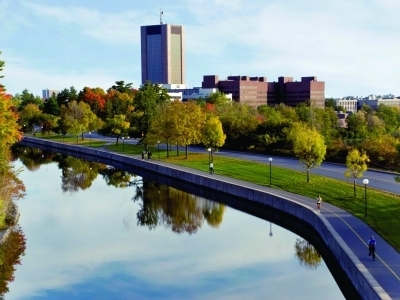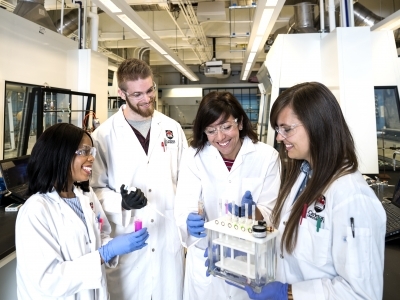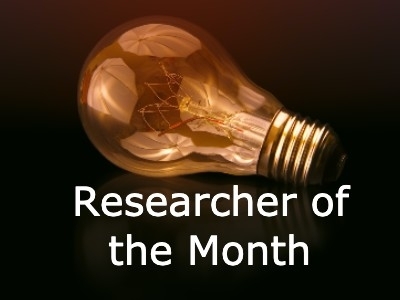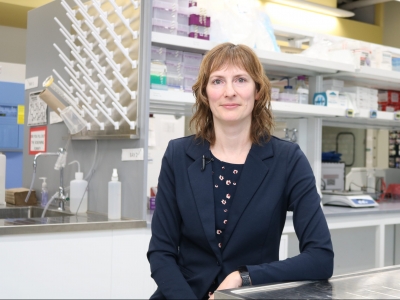In the past decade, millions of people have fled their homes to find safety and a future. World Vision notes that there are currently more than 80 million displaced people around the globe; of those, 30-34 million are children. This means that one in every 97 people in the world is now forcibly displaced.
With the ongoing COVID-19 pandemic, the situation has become even more dire.
James Milner is Project Director of The Local Engagement Refugee Research Network (LERRN), a seven-year Social Sciences and Humanities Research Council (SSHRC)-funded partnership between researchers and civil society practitioners based primarily in Canada, Jordan, Kenya, Lebanon and Tanzania. LERRN wants to make sure that refugees’ voices are heard as the team tries to help resolve the predicament of refugees.
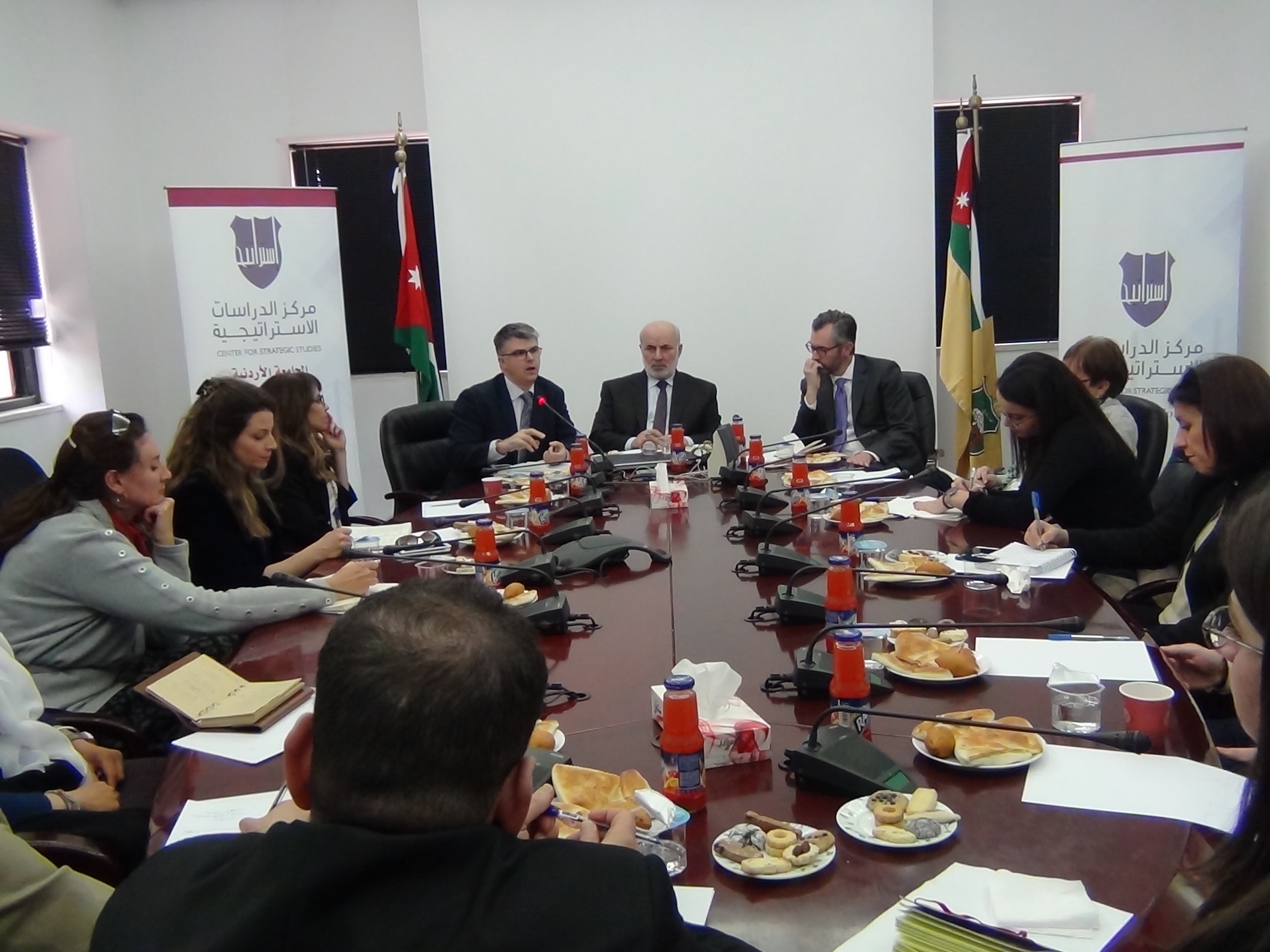
James Milner speaking at the Centre for Strategic Studies at the University of Jordan
Milner put together a large team of researchers and graduate students to help with LERRN. Among them are are three Carleton University PhD Students.
Deo Mwapinga
Deo Mwapinga worked with Burundian refugees In Katumba and Mishamo settlements in Tanzania for five years from 2012 to 2017. In this position, he continued his keen interest in helping refugees.
His PhD research focuses on refugees during two political periods: Rwandese refugees in the 1980’s and Burundians in the 2000s.
Mwapinga says his research will help provide a better understanding of long-term solutions and how available tools can best be employed to help refugees. “It also shows how skewed politics of citizenship aimed at undermining a particular group of people may unravel state security.”
Mwapinga is delighted that his research will be a great opportunity to engage more refugees in the discussion, “an experience that has been missing out.” He shares that, for many years, the voices of problems and solutions for refugees have mainly come from global north-based researchers and organizations. “As a researcher from the global south and from within, I have a lot to offer in terms of a perspective that is missing from people who have dealt and lived with refugees for decades.”
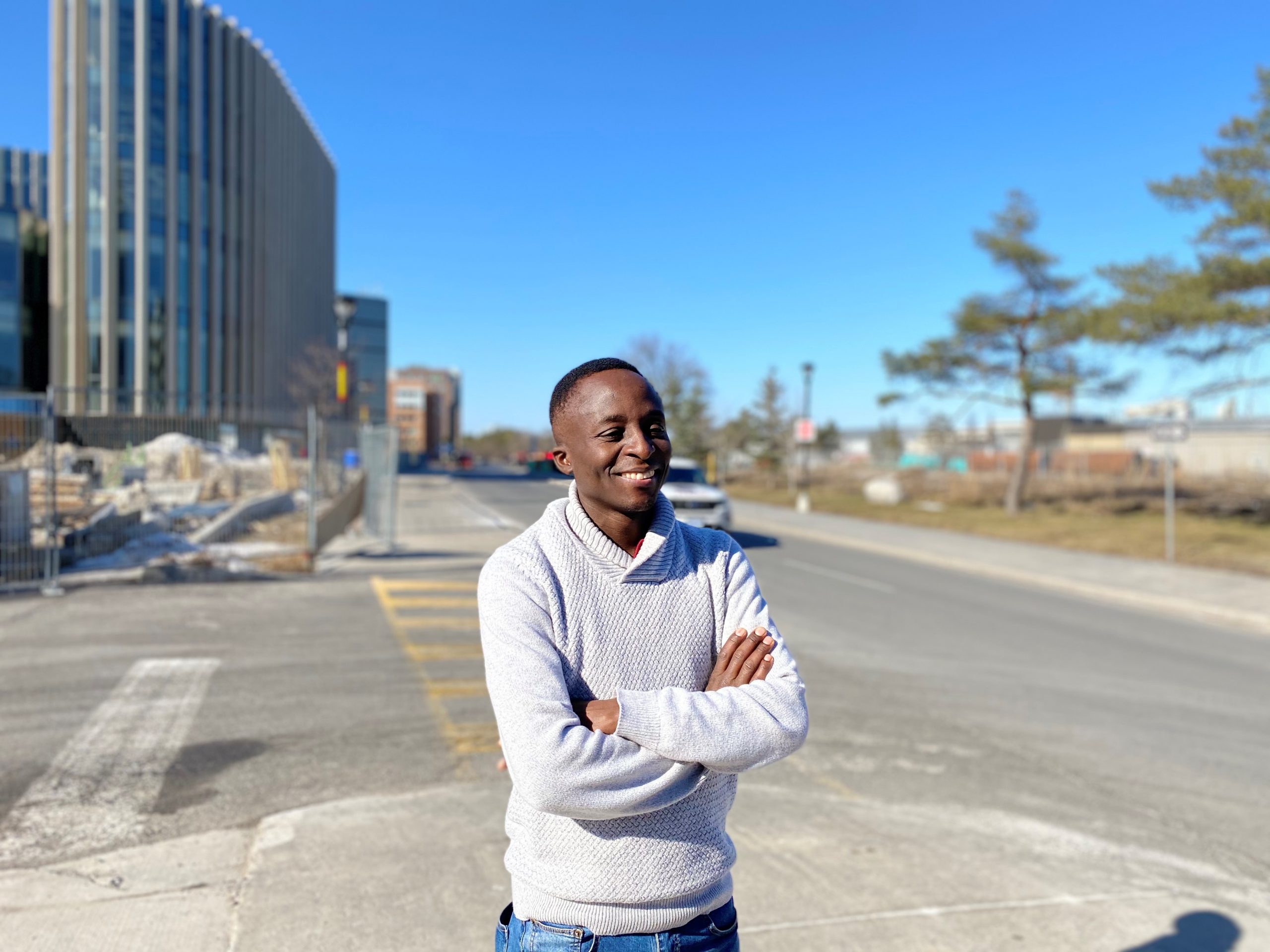
Rachel McNally
Rachel McNally grew up in small-town Nova Scotia, where she first started to welcome refugees to Canada as a refugee sponsor. “One thing I quickly realized was, even though we could help a few refugee families, there would always be more families in a similar situation, which led me to study the global and systemic challenges that refugees face.”
She came to Carleton to pursue both an MA and now a PhD.
As the Knowledge Mobilization and Translation Officer with LERRN, McNally and her team are involved in several projects. Among other things, she is organizing an international webinar series, bringing together scholars and people from a refugee background from around the world to discuss the ethics of forced migration research. She is also mentoring scholars living in the Dadaab Refugee Camp in Kenya to help them bring their research on refugee education to publication in the Working Papers Series.
Her PhD research takes a slightly different bent. Through archives and interviews, she will examine the factors that have affected the ability of refugees with disabilities and medical conditions to access resettlement in Canada. She notes that refugees with disabilities are often excluded from programs and from academic research.
“I want to bring attention to this diverse group of refugees, who like all refugees, deserve opportunities to rebuild their lives. Also, my personal experience living with health issues has made me more sensitive to the challenges that refugees with health conditions face in accessing adequate treatment. In Canada, I can access the medical treatments that I need to stay alive and to pursue my goals. I would like refugees with medical needs to have those same opportunities.”
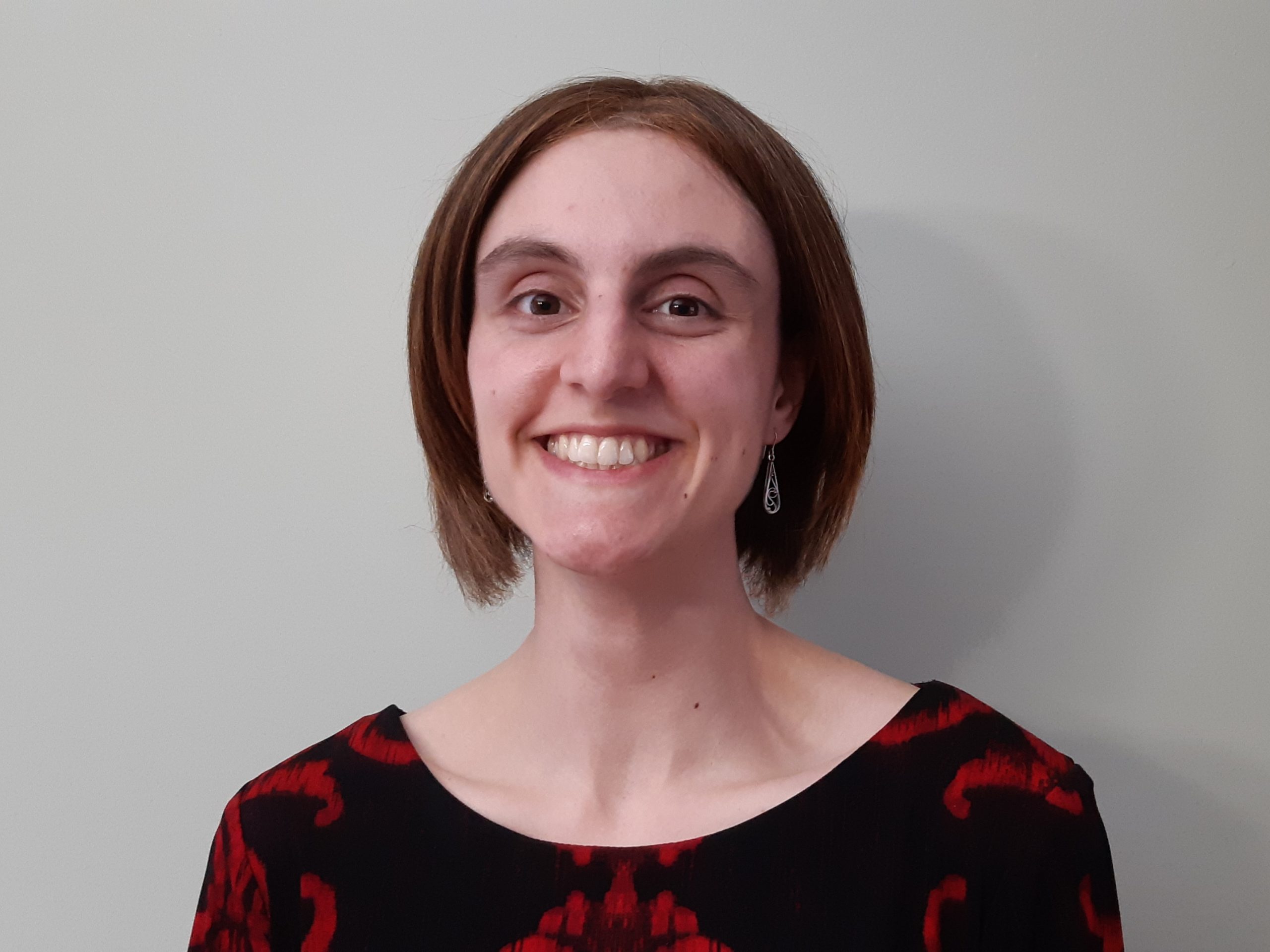
Amanda Klassen
Throughout her studies, Amanda Klassen has been very interested in different aspects of refugee issues, particularly after learning more about her own family’s history and experience of forced migration.
“I have come to understand how every context is different and complex, and that policies and solutions cannot be one size fits all,” shares the PhD student.
Her research focuses on the emergence and implementation of global commitments relating to the protection of refugee women and girls.
“Despite 30 years of attention to the protection needs of women and girls, the inclusion of gendered perspectives in global policy has been limited. And these policies have not resulted in changes in the ability of refugee women to access these protections.”
As such, Klassen hopes to demonstrate that in order for the commitments and policies to be transformative, refugee women must be included in all stages of these processes. She also hopes that her findings will be useful as a tool in the development of better policies, which will have a positive impact on the lives of refugee women and girls.
Klassen came to Carleton to work with Dr. Milner and has been fortunate to work with LERRN on a number of different projects, including co-authoring a reference paper that helped inform the United Nations High Commissioner for Refugees’ flagship publication People Forced to Flee: History, Change and Challenge. Most recently, she co-led the development of an online fieldwork training and cross-cultural research course for graduate students.

Monday, February 7, 2022 in News, Research
Share: Twitter, Facebook
